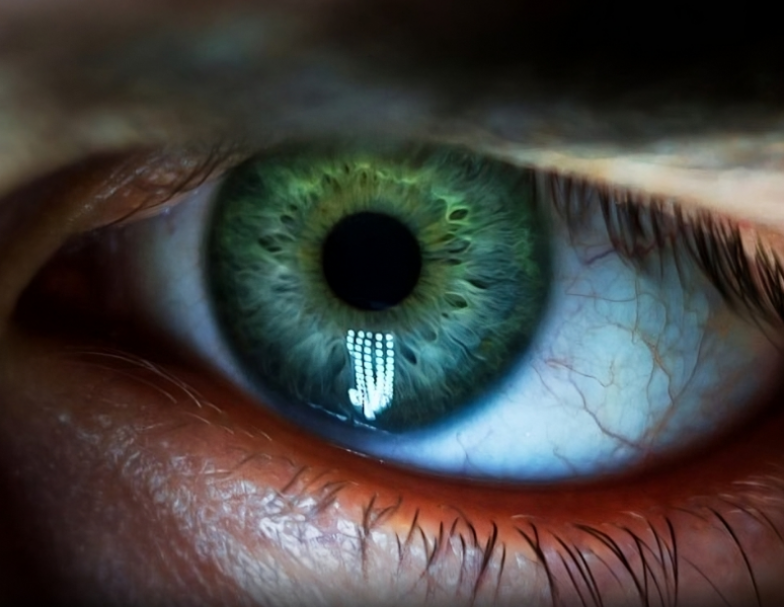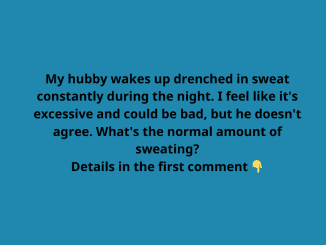It’s a scenario most of us know all too well. You’re lying in bed, wide awake in the middle of the night, and suddenly, your thoughts turn dark. Maybe you start craving unhealthy foods, feel a surge of anxiety, or even contemplate impulsive actions. According to recent research, there’s a scientific reason for this: the human mind isn’t built to function optimally after midnight. Scientists have long suspected that our brains are wired to work on a 24-hour cycle, but new evidence suggests that being awake in the hours after midnight can lead to heightened emotional sensitivity, poor decision-making, and a dangerous focus on negative thoughts.

This phenomenon, known as the ‘Mind After Midnight’ hypothesis, highlights how our brains behave differently after dark, urging us to be more aware of the impact late-night wakefulness can have on our well-being.
The Role of Circadian Rhythm in Late-Night Brain Function
At the core of this issue is our body’s circadian rhythm—the natural, internal process that regulates the sleep-wake cycle over a 24-hour period. This rhythm is influenced by factors such as light and darkness, which signal our bodies when it’s time to be awake and alert, and when it’s time to rest.
- Circadian Rhythm and Brain Activity: During the day, the brain’s molecular and neural activity is fine-tuned for alertness, decision-making, and positive emotional processing. But as night falls, the brain’s natural inclination is to enter a state of rest. When we stay awake after midnight, we are essentially working against our biological clock, which can lead to a decline in cognitive function.
Why Negative Thoughts Dominate After Midnight
One of the key components of the ‘Mind After Midnight’ hypothesis is the observation that negative emotions and thoughts take center stage during late-night hours. This shift in emotional processing can be traced back to our evolutionary past.
- Evolutionary Survival Mechanism: In ancient times, staying alert at night could mean the difference between life and death. Humans were more vulnerable to predators after dark, and as a result, our brains developed a heightened awareness of potential dangers. While we no longer face the same nighttime threats, the brain still reacts similarly, focusing on negative stimuli, which can manifest as anxiety, fear, or even paranoia.
Risky Behaviors and Impaired Inhibitions
Another concerning effect of staying awake late into the night is the increased likelihood of engaging in risky or impulsive behaviors. Researchers believe this is linked to how our brain’s reward and motivation systems operate differently after midnight.
- Altered Reward Processing: After midnight, the brain’s ability to regulate impulses weakens, making risky behaviors—such as substance abuse or overeating—more appealing. For example, a person struggling with a daytime addiction may be more likely to relapse at night, when their cognitive defenses are lower.
- Impulsive Decision-Making: The lack of mental clarity that accompanies late-night wakefulness can also lead to impulsive decisions that wouldn’t seem rational during the day. This is particularly dangerous for individuals dealing with mental health issues, as suicidal ideation and self-harm are statistically more likely to occur between midnight and 6 a.m.
The Link Between Sleep Loss and Mental Health
Lack of sleep has long been linked to poor mental health, but recent research suggests that being awake at night poses specific risks for those struggling with depression or anxiety.
- Heightened Risk of Suicide: Studies have found that suicide rates are three times higher between midnight and early morning compared to other times of the day. This may be due to a combination of circadian misalignment and the cover of darkness, which can exacerbate feelings of loneliness and hopelessness.
- Insomnia and Despair: For individuals who suffer from insomnia, the prolonged wakefulness during nighttime hours can lead to a spiral of negative thoughts. A college student, for example, might begin to feel isolated and overwhelmed after several sleepless nights, making them more vulnerable to suicidal thoughts.
The Danger of Substance Use at Night

The risks don’t stop at mental health concerns. Late-night wakefulness is also associated with an increased likelihood of substance abuse, particularly with substances like alcohol and drugs.
- Opioid Overdose Risk: A 2020 study conducted at a supervised drug consumption center in Brazil found that the risk of opioid overdose was 4.7 times higher at night. The combination of altered brain function and the privacy offered by nighttime creates a perfect storm for dangerous behaviors.
The Need for Further Research on Nighttime Brain Function
Despite the growing body of evidence linking late-night wakefulness to negative outcomes, there is still much we don’t know about how the brain operates after midnight. Neurologists like Elizabeth Klerman from Harvard University argue that more research is needed to fully understand the implications of nighttime wakefulness, particularly for shift workers and individuals with irregular sleep patterns.
- Shift Workers and Cognitive Performance: Doctors, pilots, and other professionals who work night shifts may be especially vulnerable to the negative effects of nighttime brain function. The question remains: how do their brains cope with the constant disruption of their circadian rhythms, and what can be done to protect their mental and physical health?
What You Can Do to Protect Your Mental Health After Midnight

While staying awake after midnight may be unavoidable for some, there are steps you can take to minimize the risks associated with late-night wakefulness:
- Prioritize Sleep: Maintaining a consistent sleep schedule can help regulate your circadian rhythm, making it easier to avoid late-night wakefulness.
- Reduce Screen Time: Exposure to blue light from phones and computers can disrupt your body’s production of melatonin, making it harder to fall asleep.
- Practice Mindfulness: Techniques like meditation and deep breathing can help calm your mind, reducing the negative thought patterns that often arise at night.
Conclusion: The Mystery of the Mind After Midnight
For a few hours every night, our brains function in ways that remain largely mysterious. What we do know is that staying awake after midnight can lead to emotional instability, risky behaviors, and impaired decision-making. As scientists continue to study the ‘Mind After Midnight’ hypothesis, it’s important for us to be mindful of our mental health during these vulnerable hours. Prioritizing sleep, reducing stress, and recognizing the risks of late-night wakefulness can go a long way in protecting our well-being.


